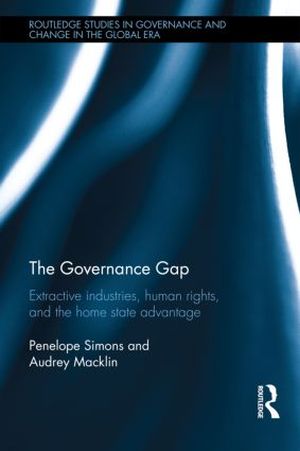We are now closed for the Christmas and New Year period, reopening on Friday 3rd January 2025. Orders placed during this time will be processed upon our return on 3rd January.

This book explores the persistence of the governance gap with respect to the human rights-impacting conduct of transnational extractive corporations operating in zones of weak governance.
The authors launch their account with a fascinating case study of Talisman Energy’s experience in Sudan, informed by their own experience as members of the 1999 Canadian Assessment Mission to Sudan (Harker Mission). Drawing on new governance, reflexive law and responsive law theories, the authors assess legal and other non-binding governance mechanisms that have emerged since that time, including the UN Guiding Principles on Business and Human Rights. They conclude that such mechanisms are incapable of systematically preventing human rights violating behaviour by transnational corporations, or of assuring accountability of these actors or recompense for victims of such violations. The authors contend that home state regulation, while not a silver bullet, has a crucial role to play in regulating such conduct. They pick up where UN Special Representative John Ruggie’s Guiding Principles on Business and Human Rights left off, and propose an innovative, robust and adaptable template for strengthening the regulatory framework of home states. Their model draws insights from the theoretical literature, leverages existing public, private, transnational, national, ‘soft’ and hard regulatory tools, and harnesses the specific strengths of state-based governance.
This book will be of interest to academics, policy makers, students, civil society and business leaders.